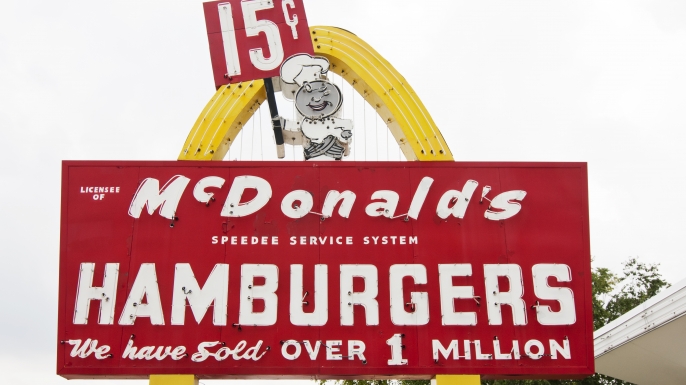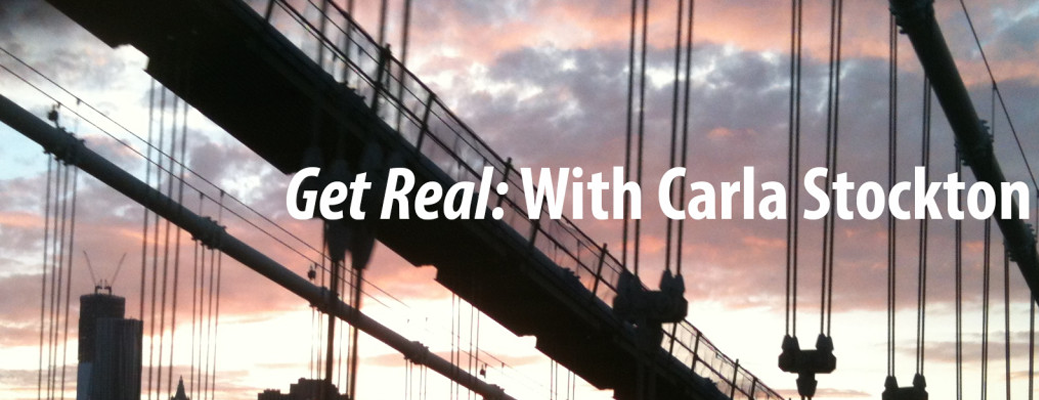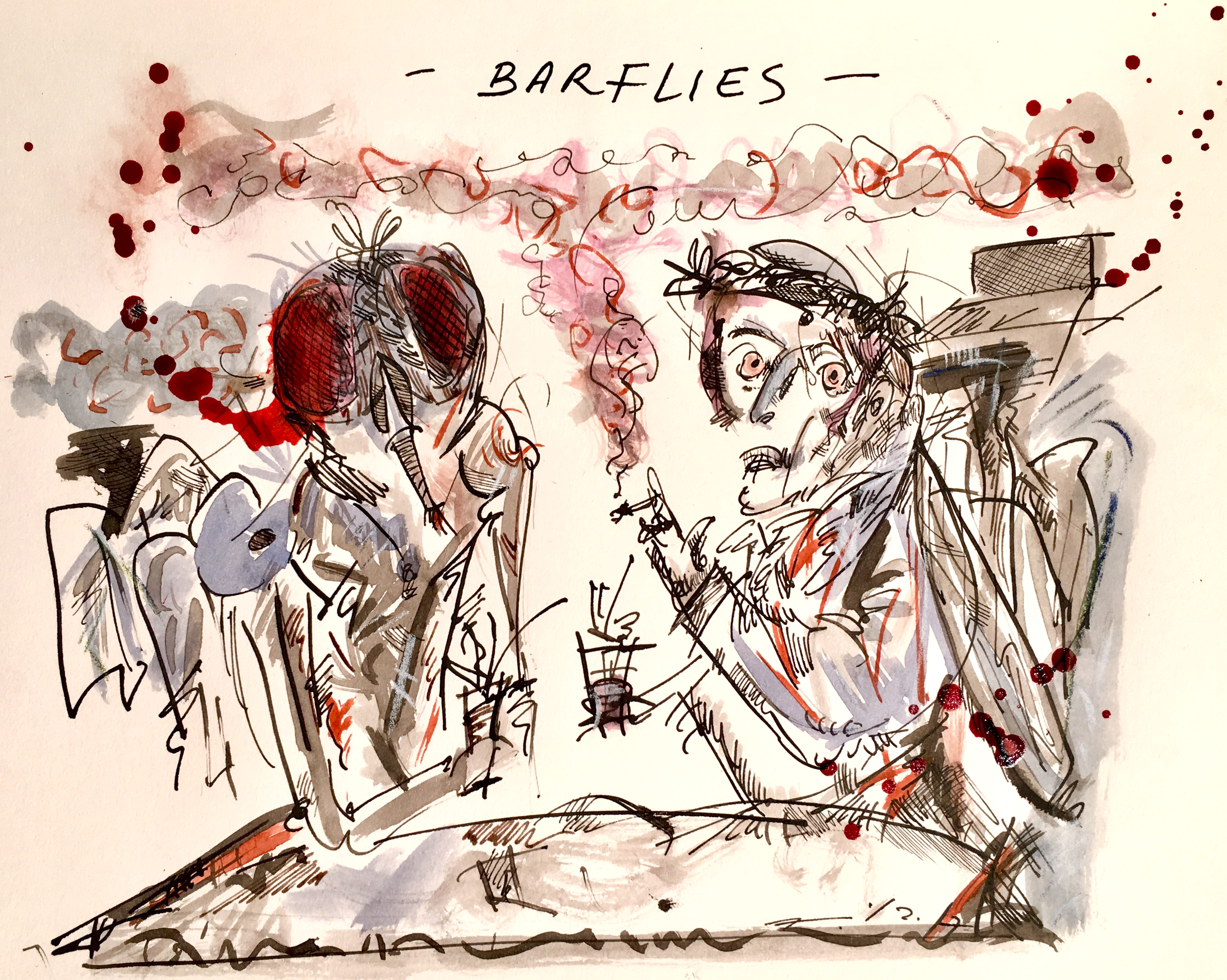My fellow Democrats,
What I’m about to write may some day seem quaint. I hope so. Because what I’m observing, what is rankling me at the moment could be simply the death rattle of the obsolete two-party system that has crippled this country long enough. We are ready for a more mature political system, and I suspect that the reason there is so much vitriol flowing among us this season is that we are caught in our party’s strangulation. Still, we are stuck with the system as it is, and we are at a dangerous crossroads, and I am troubled, so I am going to use this platform to vent just a bit. I do not represent the Journal. This is my column, and at this moment, nothing is more salient to me than the seismic division among Democrats, and that is what weighs heavily on my New York State of mind.

I don’t like to write about politics or to air my beliefs in public. I have remained silent about my candidate of choice through most of the primary circus. But lately I’ve been regretting that I don’t live in the world I expected to inhabit when I was a child in my parent’s home, a home where dissension was encouraged. Because I would really like to vent here without fear of disturbing the universe.
My parents never agreed about politics. They were married for forty years, until my father died, and despite their vehement disagreements, they still shared a bed, still raised a family together, still sat together in the evenings holding hands as they planned the next day. It was not until they reached their thirty-year mark that they found themselves in the same political camp and then only because scandal and ignominy forced my father to see things my mother’s way.
My first memory of American politics is nothing more than a lot of screaming. I was not yet 4, and I only remember shouted mystery words like “communist,” “militaristic fascist,” “intellectual,” and “war monger.” I had no idea what a “Stevenson” or an “Eisenhower” was; I just knew they both made my mother and father yell. A lot.


It wasn’t until I was 8, in 1956, when President Dwight Eisenhower was running for re-election, and Adlai Stevenson challenged him again and precipitated the re-commencement of the vocal wars between my parents, that things began to make sense. By this time I was in school, and I was precocious enough about things about some things. Like women’s rights – I knew my mother had managed to squeak into medical school but that there were quotas, and women rarely got the opportunity she had eschewed, and thanks to her, I knew that the Grand Old Party had no use for women’s rights. I was aware that many of my relatives, who had fled European fascism, were accused, especially by Republicans, of being Communists because they believed in sharing wealth, which confused and angered me. I was aware of the Republican Senator McCarthy, and of how threatening his House un-American Activities hearings were to my immigrant, arts-conscious mother and grandparents. We didn’t have a television, but they listened to the hearings on the radio, and they all cried. Wept. I asked Mom, “Why do you still love Daddy when he hates Stevenson so much and loves IKE?”
“Well,” my mother answered. “Je peux être en désaccord avec ce que vous avez à dire, mais je défendrai jusqu’à la mort votre droit de le dire. (I may disagree with what you say, but I will defend to my death your right to say so.) Voltaire said that. I believe it. It’s the basis of a democratic society.”
I couldn’t have argued with her then that the aphorism was actually coined by a woman because I didn’t know. In fact, I wasn’t precocious enough to understand why she needed to show off her French at all.
“Okay,” I stammered. “But what does that have to do with you and daddy and your fighting about who should be president?”
“All it means, silly, is that so long as I don’t expect anyone else to think like me, I won’t impose my beliefs on others, and they won’t impose theirs on me. I can love Daddy for who he is. His vote belongs to him and his conscience. I am not responsible for it, and I don’t have to judge him for it.”
By 1960, I was actively anti-Republican. I walked from house to house in my small upstate New York town and knocked on doors to tell the inhabitants how important it was to vote for JFK, on whom I also had a colossal crush. My father loved me still though now the presidential yell-fests were augmented by my own impassioned pleadings.

I must say on all our behalf, however, that we never attacked one another personally. We were all clear that it was the candidate to whom we were opposed, not to each other. And miraculously, by 1974, my father agreed that the Republican party had evolved into a belief system he could no longer support; there were no more arguments after Nixon’s resignation, and when Reagan ran against Jimmy Carter in 1980, Daddy spoke often and eloquently on Carter’s behalf.
Spirited debate, even full-on verbal battles between opposing forces in a campaign made sense to me. But even though one of us might have thought Eugene McCarthy would have been a better candidate than George McGovern, I don’t ever remember any of us calling either of them names. We may have argued about which seemed more suited to the presidency, but we never lost our cools, and we never lost sight of the fact that whoever was nominated, he – inevitably HE – would be the candidate we supported.
Lately, I’ve thought a lot about being in my parents’ home during presidential campaign seasons. Especially living, as I do, in Harlem, being, as I am, a graduate student surrounded by millennials in New York City, navigating, as I admit to, the realms of Facebook, and supporting, as I must, Hillary Clinton.
I never expected to be treated with so much disdain as has greeted me since I failed to throw my support to Bernie Sanders. I’m still a Democrat. Where is the “May-the-best-candidate-prevail-and-then-may-we-all-join-forces-and-stop-the-marauding-Republicans” mentality go? How have we come to a place where members of the same party stand face-to-face on primary day shouting obscenities at one another on 125th Street, where refusal to wear a Bernie button on Campus walk marks you as a “traitor,” or worse, where disagreement about which of the candidates to support causes erudite and respected Facebook friends to unfriend you with a parting, insulting flourish?
Undoubtedly, much of the enmity is misdirected. The angry youth are really railing against this stagnant system that need to be replaced by one that works. And the rest of us are really railing against the fact that we are not ready to shred the old system yet because no one – NO one – has come up with a viable new one. There isn’t even a blue print in place yet. We don’t want to lose our country to the opposition, who would throw women’s rights back to 1959, would burn the life-saving welcome mat at our borders, would enslave us in religious beliefs that are not our own.
Hey . . . this New York. Some of us love lox and cream cheese on our bagels, while some of us are vegan and prefer our bagels naked. Do we stop liking each other for that? To some, the din and obscenities of Times Square are among the eccentricities that make us want to live no where else, and to others, they are the reason we can’t wait to get out. Does that mean we shun one another?
We disagree. About a lot of things. We are of varying gender identifications, sexual preferences, professional aspirations, spiritual convictions, and even clothing obsessions. But we all belong. So why would we not avidly proclaim, vive la différence when it comes to choosing our heroes? When did we stop proudly hailing our individual rights to choose? How did we become so insecure that we need to cut one another off because we don’t agree which of the two candidates “deserves” the nomination most?
What is most incomprehensible to me is that both possible Democratic nominees share many of the same values. When I took the Facebook quiz about which candidate I am most closely aligned with, the answer was Bernie Sanders. I can see that. His idealism reflects my own. I chose Hillary for a number of reasons, though I know she is no closer to perfect than he is. And the bottom line is that I will vote for Sanders if he’s the Democratic nominee. I will campaign for him, carrying the message that we cannot possibly allow the Republicans to regain the Executive or maintain control of the Legislative branches of our government.
But I would never unfriend anyone who prefers Bernie. I would never call them names. At least not in public.
At home mom and dad opposed each other with vehemence and intractability. But outside, we were a unified force. All our differences remained inside. Airing those differences would have been worse than airing dirty underwear in the town hall; public display of our disagreements would have been the worst kind of betrayal.
No wonder I feel cheated by my co-partyers. It’s all so public, so useful and productive for the Republicans. And so destructive to the ultimate goal: to keep us safe from the REAL opposition.

Love,
Carla
—
 Carla Stockton, MFA candidate in Creative Nonfiction and Literary Translation. She is the mother of three, grandmother of two, writer, theater director, filmmaker, teacher and vegan traveler.
Carla Stockton, MFA candidate in Creative Nonfiction and Literary Translation. She is the mother of three, grandmother of two, writer, theater director, filmmaker, teacher and vegan traveler.




